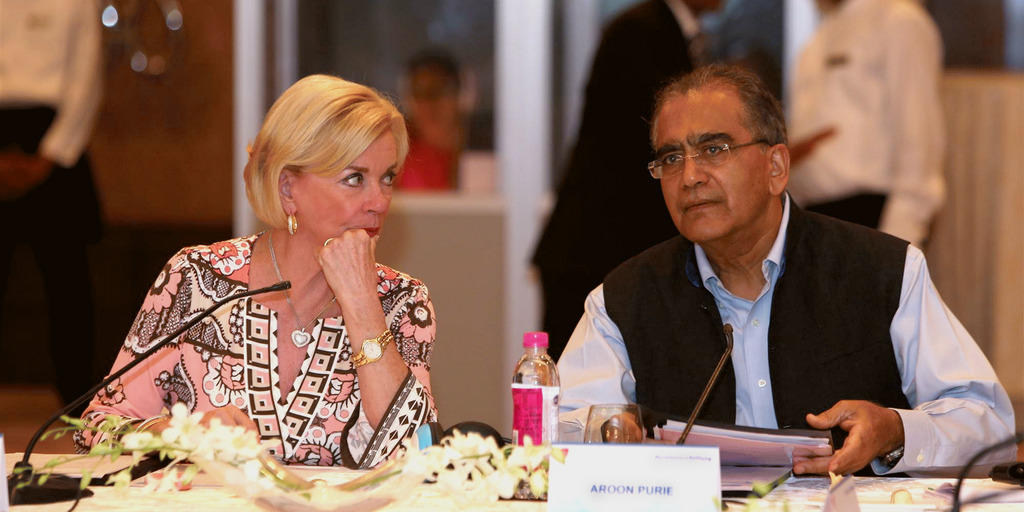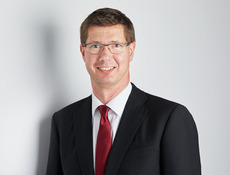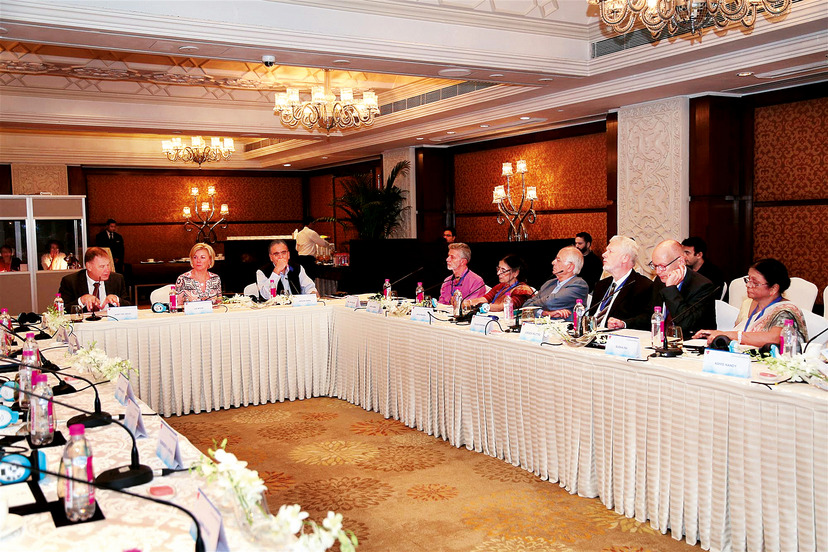
India Today
Social Cohesion in Transformation: The Experience of India and Beyond
India has been undergoing monumental transformations in its economy and society since the economic liberalization and its plunge into a globalized world about 25 years ago. Globalization has caused dramatic prosperity of some and economic marginalization of many others resulting in increasing tensions and conflicts that pose a challenge to social cohesion and political stability.
With these challenges in mind, the Bertelsmann Foundation and the India Today Group, one of India’s largest media groups, organized a high-level roundtable discussion in New Delhi on September 23, 2016 titled “Social Cohesion in Transformation. The Experience of India and Beyond”. The conference assembled 30 thought leaders from business, politics, academia and civil society, including Aroon Purie, Chairman and Editor-in-Chief of India Today Group and former Deputy UN Secretary-General Shashi Tharoor. The event also saw participation from experts and academicians like Ashis Nandy, Senior Honorary Fellow, Centre for the Study of Developing Societies (CSDS); Arun Maira, former Member of the Planning Commission of India; Paul Van Gelder, Managing Director, Sebastian Indian Social Projects (SISP) and author Gurcharan Das.
Liz Mohn, Vice-Chairwoman of the Bertelsmann Stiftung, and Aroon Purie inaugurated the round table discussion. In her welcome remarks Liz Mohn raised the central question: How can modern societies ensure the requisite measure level of social cohesion in times of rapid change and a growing number crises? She emphasized that this question is of crucial importance not only for Europe, but also for India. Aroon Purie, identified five main transformative movements impacting Indian society in his opening statement: caste mobilization, economic liberalization, the emergence of Hindu nationalism (Hindutva), the rise of regionalism and the increasing empowerment of women. All these transformative movements are, in fact, in process.
Social Transformation Processes in India and Asia
The first session, moderated by Aart De Geus, Chairman of the Bertelsmann Stiftung, built on on Purie’s introductory remarks. Gurcharan Das, author of “India Unbound”, stressed the importance of the economic liberalization, because it had a libertarian effect on all aspects of Indian society. Paul Van Gelder, who has been living and working the past 20 years amongst the poorest of the Indian society reminded participants that despite the rapid economic development still nearly 20-25 percent of the Indian population are living below the poverty line. Improving their lives remains one of the biggest challenges.
In general, there was a consensus that India is growing rapidly, social structures are transforming, old kind of dependencies are becoming in some sense redundant, and people are questioning the old structures of authority and power. On the other hand, there is also a new set of vulnerabilities which affect significant parts of the population, often exacerbated by caste politics and the rise of Hindu nationalism. There was also criticism that the middle class imagination has become the hegemonic imagination of contemporary India. When people talk about India, they only talk about about urban, metropolitan India, IT-services, shopping malls, consumption cultures, not about rural India where still more than 70 percent of the population live.
Social Cohesion in India
The second session, moderated by Kaveree Bamzai, Editor (Special Project) India Today, focused on the impact of the various transformation processes on social cohesion in India. India is an enormously diverse society. As Ashis Nandy argued, one should see India as the world’s largest experimental laboratory where this diversity is trying in different ways to experiment with ways of living together. Similarly, Shashi Tharoor pointed out that despite conscious political efforts to create a sense of ‘Hindu majority’ in the country, India remains a “collection of minorities” where even dominant castes and languages did not enjoy the majority status.
Overall, the issue of social cohesion is extremely complex in in the Indian context given the caste and religion dimensions. While the concept of equality is theoretically accepted in India, caste remains a reality in actual life and constitute a complex challenge. The same holds true for the politicization of religion through the supporters of Hindutva. Against this backdrop, the project "Social cohesion Radar in Asia" developed by the Bertelsmann Stiftung, whose results are published early next year, also attracted great interest. This pioneering study will provide scientifically proven results for 22 Asian countries.
The discussion was informed and guided by a background paper on “Social Cohesion and Transformation in India”, written by Suhas Palshikar, Co-Director of Lokniti and former Professor in the Department of Politics and Public Administration at the SavitribaiPhule Pune University. The paper can be downloaded here.





